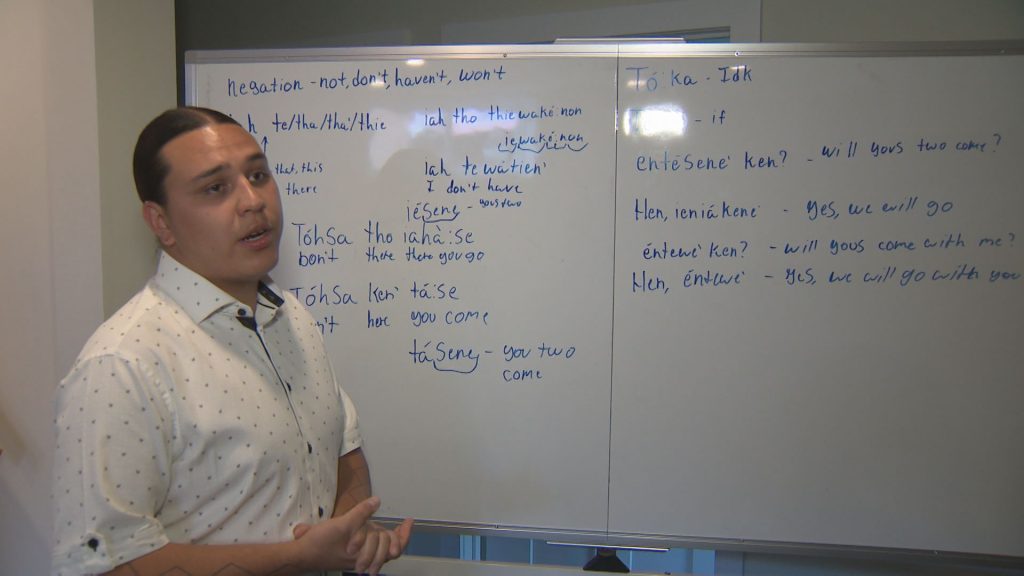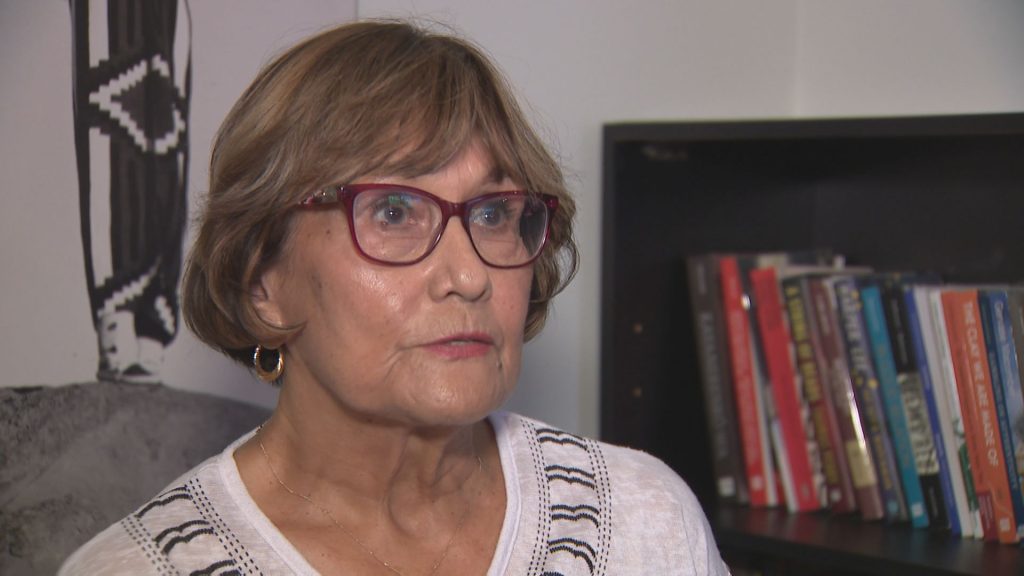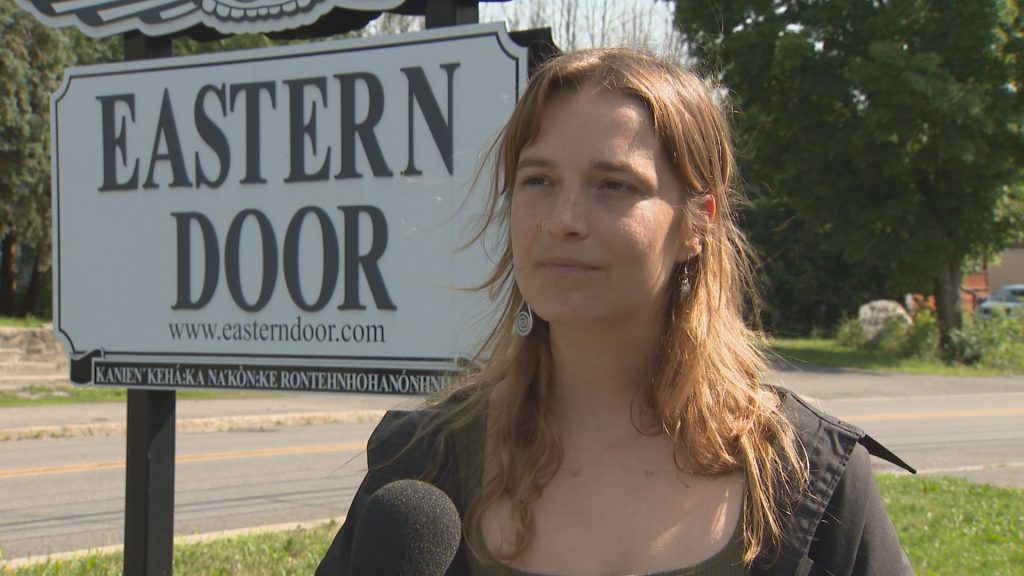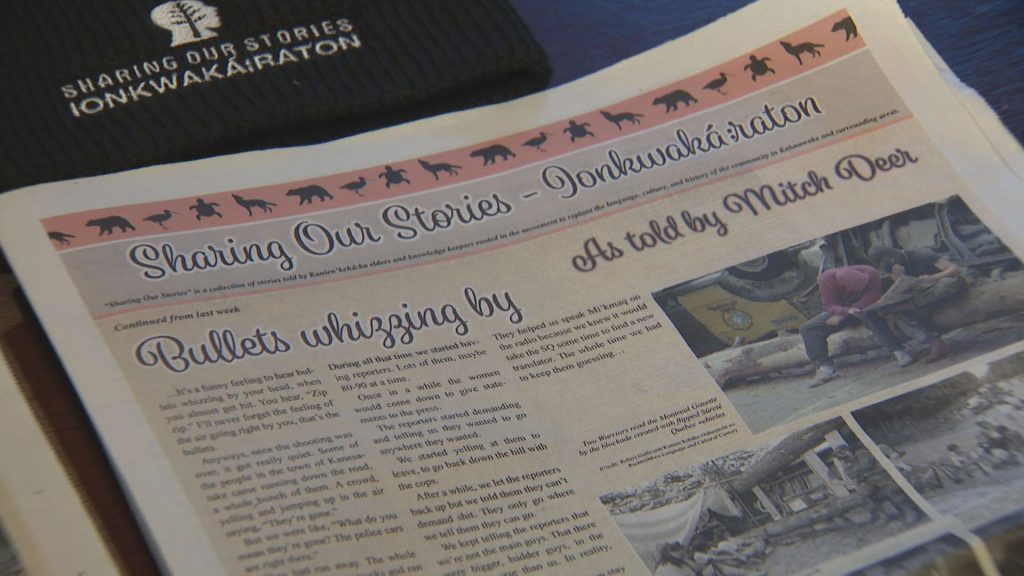“It’s really the root of everything:” How a storytelling program is revitalizing the Mohawk language
Posted July 10, 2024 10:25 pm.
A non-profit based out of the Mohawk Nation of Kahnawake is revitalizing and preserving the Kanien’kehá language through stories translated by elders and knowledge keepers in an effort to keep it alive.
Established in 2022, Sharing Our Stories (Ionkwaká:raton) began as a weekly segment published in the community’s paper, The Eastern Door.
In 2023 they became a non-profit with sights on expanding the project to empower Kanien’kehá:ka communities by collecting and translating stories on their culture, and history.
Sahawisó:ko Arquette, a translation officer, said Ionkwaká:raton is a unique project that is vital for the Indigenous language and is issued in both English and Mohawk weekly.
“The language is like really our base of identity,” Arquette said. “Anybody could talk about what a certain culture does but if you don’t have the language that’s associated with it, it’s not the same thing… so it’s really the root of everything,”

Arquette said he received his education from his family and Kanien’kéha Ratiwennahní:rats Adult Immersion Program. He says Sharing Our Stories offers workshops and programs online to community members who are either beginner or advanced in proficiency.
Arquette said the idea came from The Eastern Door’s owner Steve Bonspiel, who wanted to incorporate the traditional language within the paper. Arquette said since then, topics they’ve been able to focus on are reconciliation, agriculture, ceremonies, traditional ways of governance, and education.
“There’s been a big resurgence in people learning the language and really trying to put their all into it,” he said. “There’s a lot of things all around the language that we’re doing right now.”
Learning from the past to preserve the future
Mohawk elder Annette Kaia’titáhkhe Jacobs, 86, has been involved with language revitalization for over 50 years, being one of the first to teach it in an academic setting.
“There was a real shift in community attitude towards learning Mohawk,” Jacobs said. “We kind of took it for granted too because there were so many first language speakers still around, that we just.. I just took it for granted that it would be like that all the time.”
Decades ago, she said it was common for Mohawk classes to only last for 15 minutes and since then, programs and classes have exploded with online options becoming more available in and out of the community.

“It just makes you feel very proud when you’re out somewhere and somebody asks you or somebody speaks to you in Kanien’kehá,” Jacobs said.
Program manager Emma McLaughlin, who has been with the project for over a year, says they receive funding from various organizations across Montreal and have recently received $75,000 from Kahnawà:ke Shakotiia’takehnhas Community Services.
Despite this, McLaughlin says accessing funds and gaining recognition can be a challenge.

“Because we are new it is hard to get people to hopefully understand our full goals at this point,” she said. “We have so many things we want to do and only so much we can do because of the limited funding that we have,” she said.
McLaughlin says seeing the participation increase from elders and community members has been incredible, saying at the beginning of the project there was ten elders being interviewed and now it has increased to 45.
“We’ve heard incredible feedback from the elders who share their stories,” McLaughlin said. “A lot of people have told us how they’ve learned Kanien’kehá through the reading of the translated version of the stories.”

With topics being gathered from and by residential and Indian day school survivors, Mohawk Warriors, traditional healers, among others, Arquette said he relies on his teachings and communication with his elders, which is crucial in carrying on the tradition.
“I’m 25/8 when it comes to the language”
Following in the footsteps of his ancestors, Arquette became a knowledge bank resource, saying it was his calling and purpose to become an educator. He said he receives feedback and questions from community members eager to learn more, adding that it motivates him to continue on the tradition.
“People are really working hard to getting it back to where it original was and that’s only possible with everybody helping each other.”
Arquette said the demand for translations and questions regarding the language has increased, saying he offers his services in person and online.
“No matter what time and date is day or night, if I don’t have the answer, I’ll find out and I’ll get back to you and if I know, I’ll tell you right away,” he said.
Jacobs said it will take years for the language to return to its original state but remains confident that the next generation will see the importance of carrying on the legacy that was left behind from generations before.
“They have to keep up that determination that they are going to become totally fluent,” she said. “It’s absolutely crucial to speak your language to say that you are Kanien’kehá:ka.”








